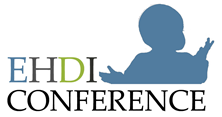| ABSTRACT INFORMATION |
| Presenter Information: |
| Presenter 1: |
Name: Gwen Carr
Affiliation: University of Manchester, UK
Gwen Carr is Director for Early Intervention and Deputy Group Director of the MRC Hearing and Communication Group at the University of Manchester. Previously, she was UK Services Director at the National Deaf Children’s Society for over 3 years, following 10 years as Head of Sensory Support Services in a metropolitan area.
Gwen has been Early Years Lead with the NHS Newborn Hearing Screening Programme (England) since 2002. She co-led the UK government funded research and development study ‘Informed Choice, Families and Deaf Children’, and is a co-applicant in ‘Positive Support’, a UK longitudinal research study about outcomes for young deaf children and their families.
|
|
| Author Information: |
| Author 1: |
Name: Gwen Carr
Affiliation: University of Manchester, UK
|
| Author 2: |
Name: Adrian Davis
Affiliation: University of Manchester , UK
|
| Author 3: |
Name: Christine Cameron
Affiliation: University of Manchester, UK
|
| Author 4: |
Name: Elizabeth Orton
Affiliation: Formally University of Manchester, UK
|
|
| Abstract Information: |
| Title: |
Service improvement through effective quality assurance: the experience of the England Newborn Hearing Screening Programme |
| Primary Track: |
7-Program Evaluation and Quality Assurance
|
| Keyword(s): |
quality assurance, standards, early support |
Abstract: |
The full implementation of newborn hearing screening in England was completed in April 2006. Now approximately 700 children with bilateral hearing loss and 400 with unilateral loss are identified early as a result of the programme. In November 2006, the national Newborn Hearing Screening Programme (NHSP)Centre developed and implemented a Quality Assurance and service evaluation framework, based on national data collection and expert peer review, with the first cycle of QA visits being completed in March 2008.
The NHSP Programme Centre sets national quality standards and monitors programme performance against the standards through a comprehensive quality assurance and risk management framework. The aim is to maintain minimum standards and improve the performance of all aspects of the care pathway - from screen, through assessment and diagnosis, medical management, to early intervention / habilitation and family support. The principles of Informed Choice and family friendly practice underpin the process.
QA peer review visits aim to determine whether:
- commissioned services meet the needs of children and families
- effective governance structures and strategic partnerships are in place
- the entire care pathway is delivered in line with the quality standards
- services have an active culture of quality improvement.
QA visits acknowledge good practice and make recommendations for improvement. The resulting local action plans are monitored for their effectiveness. Emerging trends and risks to the programme are analyzed and fed back into the ongoing development and delivery of the programme nationally.
As a result of the QA process and in response to its findings, the Programme Centre has devised national training programmes, developed a helpdesk service and modified protocols and guidance in order to facilitate quality improvement in identified areas of performance. This presentation will present an overview of the standards, the results of the first peer review cycle and highlight aspects of service delivery which have challenged EHDI practitioners. |
| Presentation(s): |
Not Available
|
| Handouts: |
Not Available
|
|

